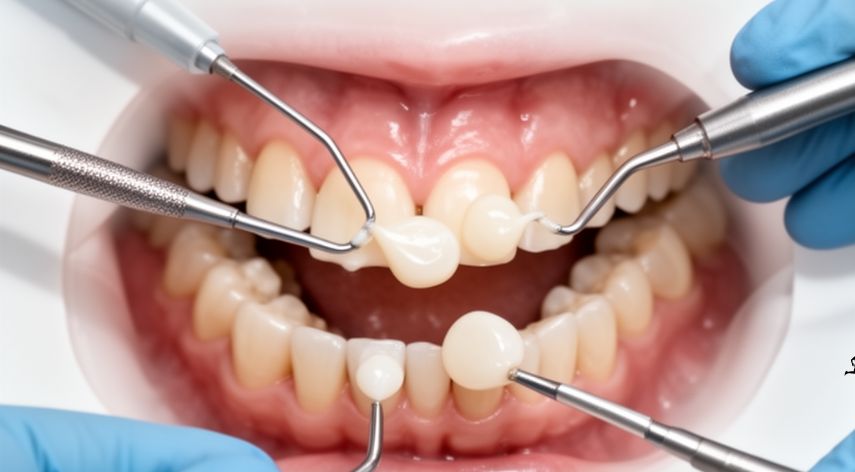How HPV Testing Helps Detect Cervical Cancer Early

The key to stopping cervical cancer is detecting it early. HPV testing is an important part of that effort. HPV tests are part of cervical screening in the UK so that the human papillomavirus, the primary cause of cervical cancer, can be detected more than a year before any symptoms develop. Recognising the high-risk HPV types early, women will be able to be monitored and treated without losing valuable time and reduce their chances of cervical cancer progression in the future. Once you understand the HPV testing process and its importance, it allows you to take command of your health and cancer prevention process for cervical cancer.
What Is HPV and Why It Matters
Human Papillomavirus (HPV) might sound like a complicated medical term, but it’s actually quite common. HPV is a group of over 100 related viruses, most of which are harmless and go away on their own. However, some strains—known as “high-risk” types—are linked to cervical cancer. These strains can cause changes in the cells of the cervix, potentially leading to cancer if left untreated.
In the UK, HPV infections are incredibly widespread. In fact, nearly all sexually active people will contract some form of HPV at some point in their lives. The good news? Most infections clear up without causing harm. But for those that don’t, regular screening can make all the difference.
Understanding HPV Testing
So, what exactly happens during an HPV test? Unlike a traditional smear test (also called a Pap test), which looks for abnormal cells in the cervix, an HPV test checks for the presence of high-risk HPV strains. During the procedure, a healthcare professional takes a small sample of cells from the cervix using a soft brush. This sample is then sent to a lab for analysis.
The NHS introduced HPV testing as the first step in cervical screening because it’s more sensitive than a smear test. If the HPV test comes back negative, it means you’re at very low risk of developing cervical cancer in the next few years. If it’s positive, further tests are done to check for abnormal cells.
According to NHS guidelines, women aged 25-49 should get screened every three years, while those aged 50-64 should do so every five years. These intervals ensure that any potential issues are caught early.
The Role of HPV Testing in Early Detection
Early detection is key to beating cervical cancer, and HPV testing plays a crucial role in making that possible. Since HPV infections often show no symptoms, they can go unnoticed for years. By the time symptoms appear, the disease may have progressed significantly.
An HPV test identifies high-risk infections long before they cause visible cell changes. This gives doctors a chance to intervene early, preventing the development of cancer altogether. Studies have shown that countries incorporating HPV testing into their screening programmes have seen a marked decrease in cervical cancer cases.
Imagine catching a problem before it even starts—that’s the power of HPV testing.
HPV Testing vs. Pap Smear: What’s the Difference?
Now, let’s clear up some confusion: what’s the difference between an HPV test and a Pap smear? Both are used in cervical screening, but they serve different purposes.
A Pap smear examines the cells of the cervix under a microscope to look for abnormalities. It’s highly effective but less sensitive than an HPV test. On the other hand, an HPV test detects the presence of the virus itself, which is often the root cause of these abnormalities.
In the UK, HPV testing has become the primary screening method because it’s better at identifying women at risk of developing cervical cancer. If the HPV test is negative, no further action is needed until the next scheduled screening. If it’s positive, a Pap smear or colposcopy may follow to assess the situation further.
What to Expect During a Private HPV Test in the UK
If you’re considering a private HPV test in London, here’s what you need to know. The process is similar to NHS screening: a healthcare provider collects a sample from your cervix, which is then analysed in a lab. Results are usually available within a few days to a couple of weeks.
Private testing offers convenience, especially for those who want quicker results or prefer scheduling outside NHS waiting times. Costs vary depending on the clinic, typically ranging from £100 to £300. You can access private HPV testing at gynaecology clinics, sexual health clinics, or specialised diagnostic centres.
While private testing provides flexibility, the NHS programme remains free and equally reliable. The choice ultimately depends on your personal preferences and circumstances.
Interpreting HPV Test Results
Receiving your HPV test results can feel nerve-wracking, but understanding what they mean can help ease anxiety. A negative result indicates no high-risk HPV was detected, meaning you’re unlikely to develop cervical cancer in the near future.
A positive result, however, doesn’t mean you have cancer—it simply means you have a high-risk strain of HPV. Your doctor will likely recommend additional tests, such as a colposcopy, to examine the cervix more closely.
It’s normal to feel worried after a positive result, but remember, early detection puts you in control. Many women with HPV never develop cervical cancer, thanks to timely intervention. Emotional support is also available through charities like Jo’s Cervical Cancer Trust, which offers guidance and reassurance.
Preventing HPV and Cervical Cancer
Prevention is always better than cure, and there are several ways to reduce your risk of HPV and cervical cancer. The HPV vaccine, offered to girls and boys aged 12-13 in the UK, protects against the most dangerous strains of the virus. Even if you’ve been vaccinated, regular screening remains essential, as the vaccine doesn’t cover all HPV types.
Safe practices, like using condoms and limiting sexual partners, can also lower your risk. Additionally, maintaining a healthy immune system through balanced nutrition, regular exercise, and stress management helps your body fight off infections more effectively.
Remember, being proactive about your health isn’t just about you—it’s about setting an example for others and ensuring a healthier future for everyone.
Conclusion
Cervical cancer may be a serious condition, but thanks to advancements in screening, it’s one we can tackle head-on. HPV testing has revolutionised early detection, giving women the opportunity to catch problems before they escalate. Whether you choose NHS screening or opt for private testing, staying informed and proactive is the best gift you can give yourself.
To all the women reading this: don’t put off your next screening appointment. Early detection saves lives, and you deserve peace of mind. With knowledge, prevention, and modern medicine on our side, we can continue to reduce the impact of cervical cancer in the UK. Stay strong, stay informed, and take charge of your health today.
Lareal Young is a legal professional committed to making the law more accessible to the public. With deep knowledge of legislation and legal systems, she provides clear, insightful commentary on legal developments and public rights, helping individuals understand and navigate the complexities of everyday legal matters.
Recommended For You
In the heart of the City of London, maintaining excellent oral health is essential for busy professionals and residents alike.
If you’re searching for “composite bonding near me” in London, it’s important to know what truly sets a clinic apart.
Cancer affecting the urinary tract and male reproductive organs requires specialized care. This is where uro-oncology plays a crucial role.
Browse by Category
- Travel
- Technology & Gadgets
- Sports & Games
- Software
- Shopping
- Reviews
- Real Estate
- Numerology
- News
- Make Money
- Lifestyle
- Law
- Home Improvement
- Health
- Gardening
- Games
- Finance
- Entertainment
- Education
- Digital Marketing
- Diet and Fitness
- Dating
- Construction
- Celebrity
- Career and Jobs
- Business
- blog
- Angel Number



